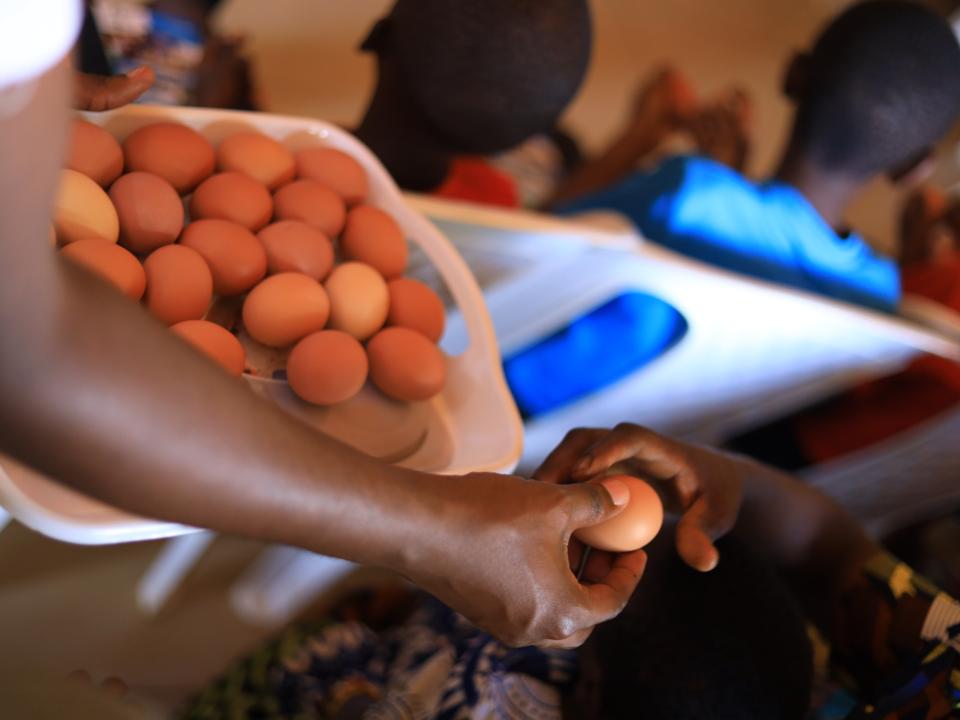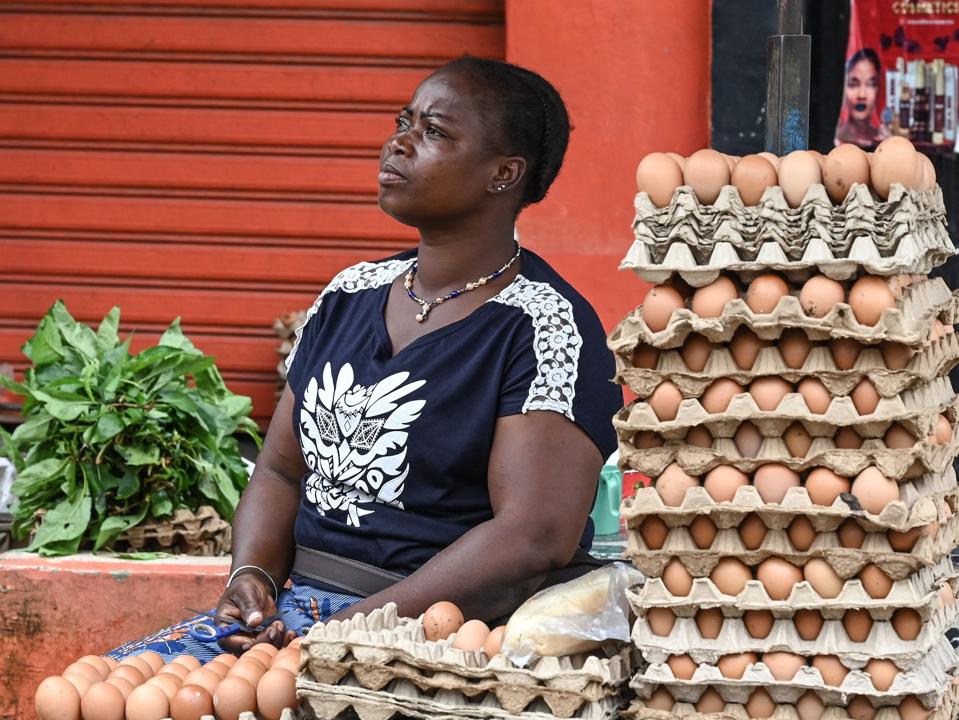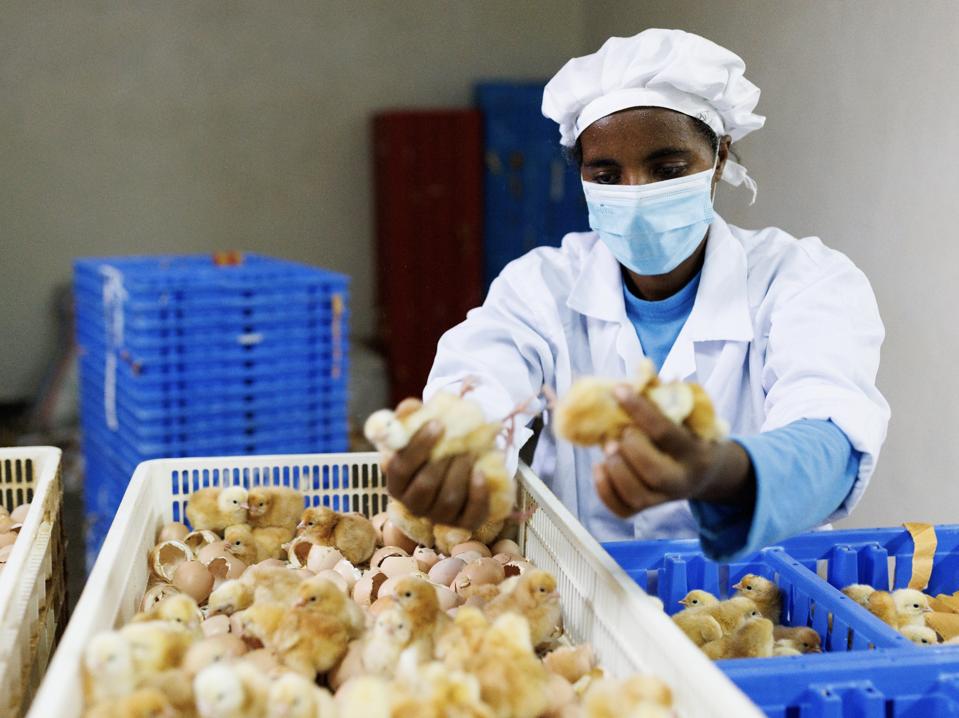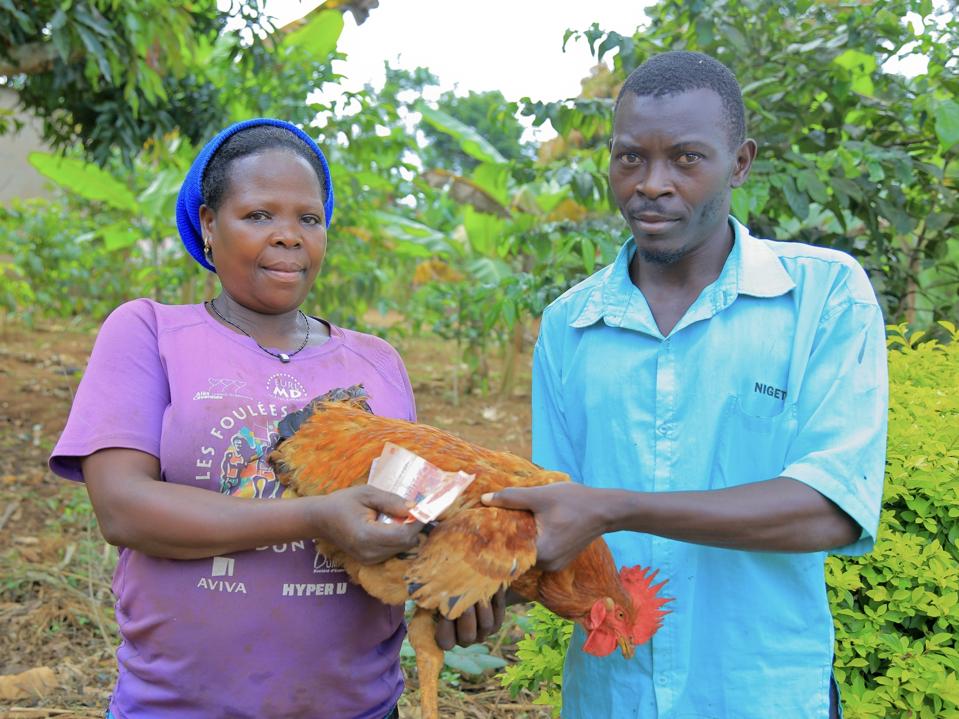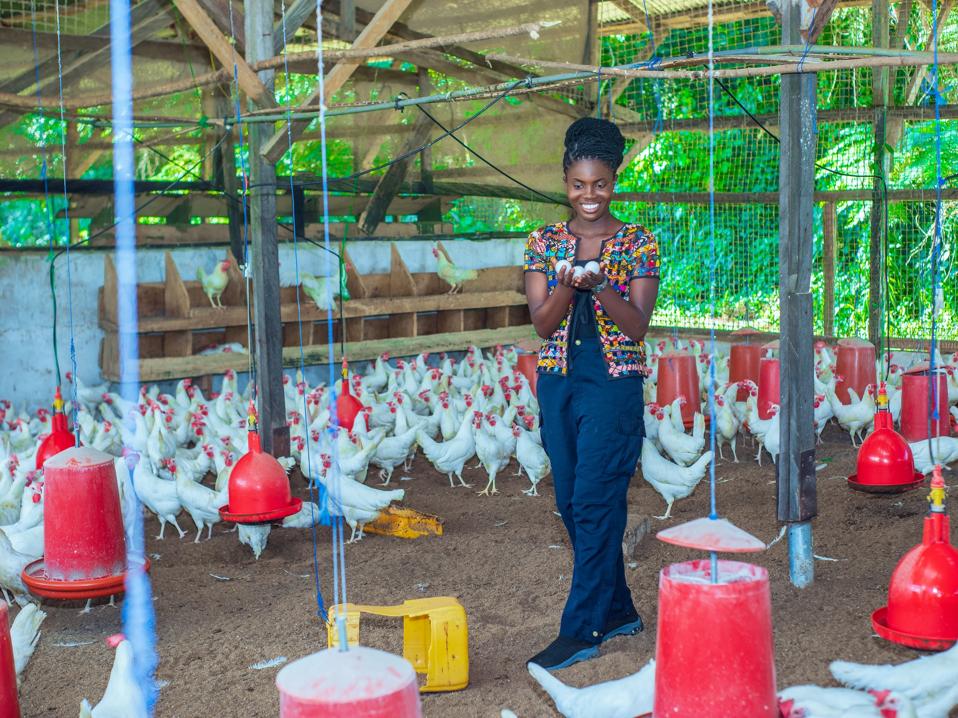The high-pitched voices of babies and young children fill the air like music across the wide expanse of Mukinga field in Rwanda’s Musanze district. Under a vibrant canopy of colorful umbrellas, dozens of parents— mostly mothers— gather to escape the blazing afternoon sun. Their children, gathered in nearby tents, are being served eggs as part of an initiative to address the region’s ongoing malnutrition crisis. This simple yet vital meal offers hope for a healthier future for the community’s youngest members.
“I don’t know why, compared to other children the same age, my child doesn’t gain weight,” laments one mother in the local language of Kinyarwanda. “Whenever I get money, I try to get him all I can afford.”
A selection of vulnerable families who have expressed similar concerns for their children are provided with thirty eggs each— part of the “One Egg Per Child Every Day” nutrition drive, designed by the Heza Egg Hub.
Eggs are one of nature’s most complete foods— rich in protein, vitamins, and essential nutrients. According to the National Library of Medicine, providing a child with just one egg a day has been shown to reduce stunting rates by 47%.
In Africa, where 30.8% of children under five are stunted and one in five people is undernourished, this impact has the potential to be particularly powerful.
Heza Egg Hub was developed by youth-led group, Heza Initiative, as a small business incubator to provide economic opportunities to teen mothers, who are often cast aside by society.
“These young women often face rejection from their families,” says co-founder, Samuel Niyonzima. “We train them in poultry farming, provide seed capital, and help them to build a future for themselves and their children.”
The impact isn’t just economic; it’s psychological and nutritional.
“We’ve seen young mothers who had lost hope gain confidence and stability. Their children, once malnourished, are now healthier.”
Niyonzima and co-founder, Samuel Nduwayezu— both registered nurses— have seen the devastating effects of malnutrition firsthand.
Staff from Heza Egg Hub provide children with one egg each
“We’ve discovered that 33% of children in Rwanda are stunted— not because families lack resources, but due to poor nutrition [habits],” says Niyonzima.
A recent survey reveals that 20% of households in Musanze are food insecure, relying heavily on starchy diets with little dietary diversity. Less than 20% of respondents reported having eaten any animal-based foods in the previous day.
Historically, this has been the dietary trend for much of sub-Saharan Africa, but this is starting to change— one egg at a time.
According to Dr. E. Fallou Guèye of the Food and Agriculture Organization, Africa’s poultry sector is one of the fastest-growing agricultural sectors, with a 10-year growth rate of 40.9%— surpassing the global average of 36.2%.
While the continent currently trails behind in per capita egg consumption, demand is rapidly increasing. For example, in Rwanda, egg consumption grew by 67% between 2010 and 2020, while Ghana attained record high egg production of 51.5 kilotons in 2020. The African egg market is projected to continue expanding, with an expected annual growth rate of 10.10% through 2029.
A vendor sells eggs in Abidjan, Côte d’Ivoire. Africa’s poultry sector is one of the fastest-growing … [+]
Through innovative initiatives and small business models, poultry farming is proving to be a powerful tool in women’s empowerment, improved livelihoods, climate resilience— and the fight for Zero Hunger.
“It’s nature’s finest gold that you can have. It has all the nutrition you can think about,” says Dr. Gloria Ethel Ofei-Akoto, the founder of Ghana’s OphirGold, a social enterprise fueled by the transformative power of eggs.
As medical doctors, Gloria Ethel and her husband Elliott have seen how malnutrition— particularly among children— ravages communities.
“During my medical internship, I happened to be on a malnutrition block where we had to see a lot of malnourished children from parents who were from rural areas— mothers who would lose their children,” she recalls.
In 2020, when the couple migrated to the western Bono region of Dormaa Ahenkro, where chicken production is a dominant economic activity, they were disheartened to observe poultry farmers throwing eggs away.
The couple soon found that while there was demand for eggs, the high cost of chicken feed was making the egg business unviable. What made it worse is that the country’s production levels were not high enough to meet local demand— 80% of poultry products were being sourced through imports.
To solve the dual problems of market access and malnutrition, the couple launched OphirGold. Through aggregation and contract farming models, training in safe production and by ensuring fair pricing, the social enterprise and its manufacturing facility are supporting smallholder livelihoods while growing the supply of egg products to meet the needs of the industrial sector, which includes bakeries and airline kitchens.
What’s more, by offering a diverse range of value-added egg products, and through the production of calcium micro-nutrient boosters made of eggshells, the company is using egg innovation as a tool to combat malnutrition.
Dr. Gloria Ethel Ofei-Akoto, founder of Ghana’s OphirGold, is a strong believer in the power of eggs … [+]
For Ofei-Akoto, this is her calling.
“I will say that maybe I was meant to do this. My husband teases me because my maiden name is Gazy— Ethel Gloria Gazy— the initials are E-G-G,” she laughs, outlining her tireless efforts to grow demand among less informed consumers by demystifying local myths around egg consumption.
“Pregnant women not allowed to eat eggs, or else their children will become thieves,” she says, shaking her head. “Even the farmers were producing the eggs and not eating it themselves because of high cholesterol. We had to do a lot of education.”
With an average of just 44 eggs consumed per person annually, Africa accounts for only 4.1% of global egg consumption, despite contributing to 17.2% of the world’s population. This gap presents a tremendous opportunity for growth in the sector, and signs of that expansion are already beginning to emerge.
According to Rabobank Senior Animal Protein Analyst, Nan-Dirk Mulder, Africa’s rising middle class and rapid urbanization are driving a transformation in the continent’s poultry industry. As diets shift from predominantly vegetable-based to more protein-rich options, poultry and eggs have become the top choices, thanks to their affordability, availability, and popular taste. Poultry production’s quick return on investment makes it an appealing and scalable business, attracting significant investments and positioning the sector for rapid growth.
These favorable conditions made social enterprise, Hatch Africa, an attractive investment for Rabobank and other partners of the IDH FarmFit Fund, the world’s largest ever public-private impact fund for smallholder farmers.
Hatch Africa’s innovative model— operating in Ethiopia, Kenya, Ghana, Côte d’Ivoire, Rwanda and Uganda— reaches up to 4.6 million smallholder farmers annually, transforming them into micro-entrepreneurs, and providing them with the resources and support they need to thrive.
Day-old chicks at Ethiochicken, one of Hatch Africa’s facilities located in Addis Ababa, Ethiopia
The organization’s improved breed of dual-purpose chickens, which are bred at local production sites, outperform indigenous breeds by growing faster, laying up to three times more eggs, and showing greater resistance to disease.
The 16,000-plus agent-driven business model, 31% of whom are women, is designed to reach small-scale producers and rural households on a large scale. Agents purchase day-old chicks which they brood for up to a month and a half and then sell to smallholder farmers.
“Our smallholder farmers are typically purchasing between 5 to 20 chickens, keeping some for household consumption, and selling the surplus eggs and market-weight birds to their communities,” explains Laura Allan, Hatch Africa’s Impact Lead. “Our whole mission and vision is about making farmers healthier and wealthier.”
The results are profound: In 2023 alone, Hatch Africa sold over 45 million day-old chicks, producing an estimated 3.5 billion eggs in rural communities, and since inception (2010) it has generated an estimated $3.1 billion in additional income for smallholders across their countries of operation.
“When we talk about SDG2, Hatch Africa for us, just comes to the forefront,” says IDH Senior Investment Manager, Isaac Mungoma.
“In Africa, an egg is the cheapest source of protein that you can find. A chicken lays an egg every day. You can eat it, and you’ll be guaranteed, once you feed that chicken, another egg will be coming, so it doesn’t need storage. It’s very affordable, it can penetrate the most rural parts of any country, and chickens don’t need any additional land, which is also an issue, particularly for the most vulnerable of our population, [many of] whom are women.”
Allan explains that integrating women within their networks as brooding agents and smallholder farmers is a key priority for Hatch Africa, acknowledging the significant income generation and improved food access the role can bring for rural women.
Poultry also offers the opportunity for climate resilience. According to a third-party study commissioned by Hatch Africa, 85% of its farmers say that rearing improved breed poultry has improved their ability to withstand climate shocks.
In sub-Saharan Africa, smallholder farmers, 70% of whom are women, produce 70% of Africa’s poultry. This small-scale production supports income generation, poverty reduction, and food security, especially for women and youth. Poultry farming also tends to be more environmentally sustainable, as compared to the farming of other types of meat.
A Hatch Africa brooding agent in Côte d’Ivoire sells a chicken to a smallholder farmer
Purpose-driven enterprises and initiatives focused on zero hunger are playing a key role in driving the growing demand for eggs in Africa. By empowering smallholder farmers and raising awareness about the nutritional value of eggs, these efforts are transforming communities and fueling the drive to end hunger across the continent.
“I personally think that entrepreneurship is about solving a transgenerational problem with a solution that outlives you,” reflects Ofei-Akoto.
“People should benefit from the eggs that are being produced and the farms that have been revived. We must make sure that what we are doing benefits society, benefits the climate, benefits the ground, benefits everyone around us, and then that solution that we have proposed should outlive us. When you put purpose ahead of business, you always win.”
Ofei-Akoto says that the egg business is her calling

